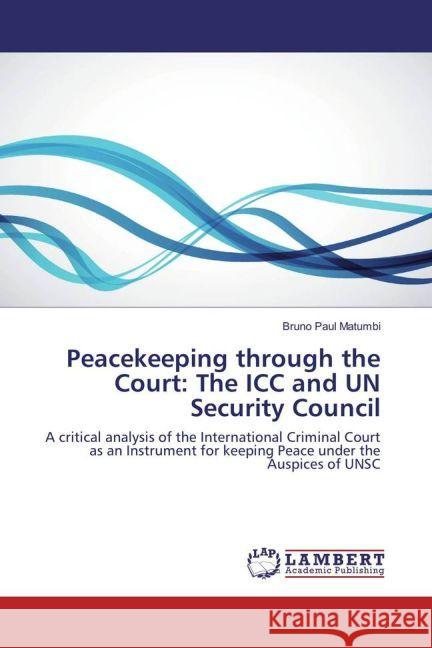Peacekeeping through the Court: The ICC and UN Security Council : A critical analysis of the International Criminal Court as an Instrument for keeping Peace under the Auspices of UNSC » książka
Peacekeeping through the Court: The ICC and UN Security Council : A critical analysis of the International Criminal Court as an Instrument for keeping Peace under the Auspices of UNSC
ISBN-13: 9783659899225 / Angielski / Miękka / 2016 / 72 str.
Peacekeeping through the Court: The ICC and UN Security Council : A critical analysis of the International Criminal Court as an Instrument for keeping Peace under the Auspices of UNSC
ISBN-13: 9783659899225 / Angielski / Miękka / 2016 / 72 str.
(netto: 101,58 VAT: 5%)
Najniższa cena z 30 dni: 106,66
ok. 10-14 dni roboczych
Dostawa w 2026 r.
Darmowa dostawa!
The UN Security Council (UNSC) acting under chapter VII of the Charter of the United Nations has the mandate in article 13 (b) of the Rome Statute to refer situations to the International Criminal Court(ICC) Prosecutor for investigation and possible prosecution. The mandate, however, is a sword that cuts both ways. The ICC benefits from the UNSC through enforcement mechanisms and also acquires jurisdiction over situations it would not normally handle. In the same breath, the ICC may suffer from loss of legitimacy and independence. This book discusses the nature of the relationship between the ICC and the UNSC in the light of the latter's power to impact on the work of the Court. The case study of the ICC arrest warrant against Sudanese president comes handy. The Rome Statute provision mandating the UNSC to refer situations to the ICC will therefore be critically analysed. Suggestions for an alternative regime based on request for an opinion will be made against the current referral regime. The view taken is that an opinion regime will allow the ICC some more discretion, independence and in the end legitimacy. It will also facilitate the proper sequencing of justice and peace.











